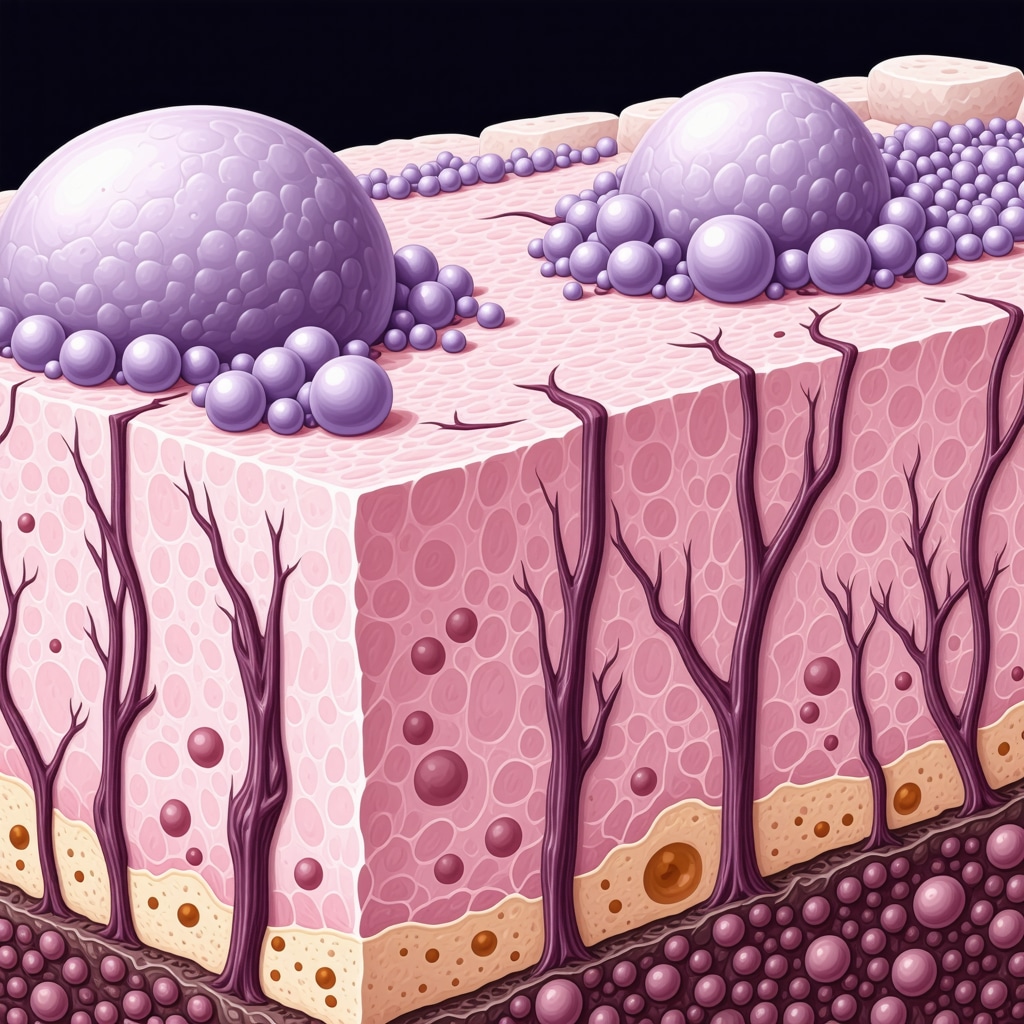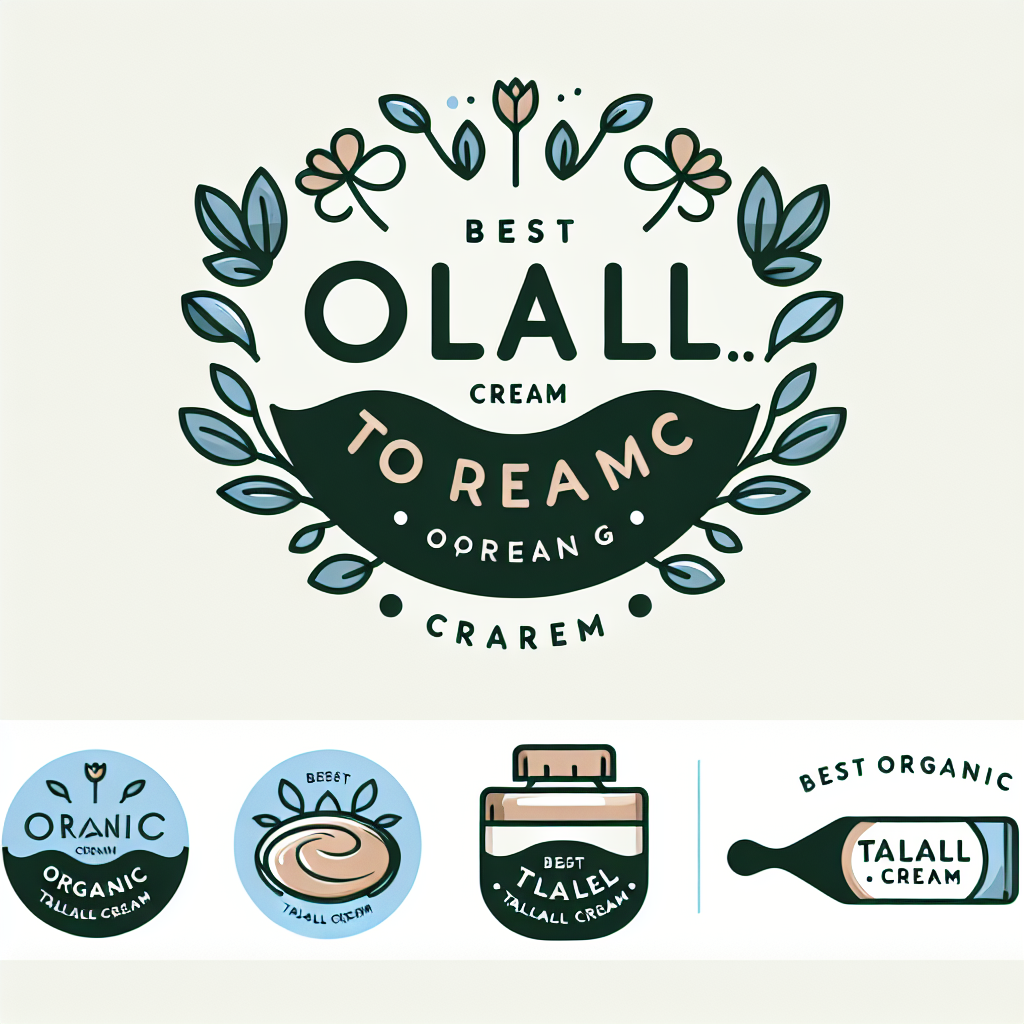Understanding the Unique Needs of Autoimmune Skin Conditions in Natural Skincare
Autoimmune skin conditions such as psoriasis, lupus erythematosus, and eczema present complex challenges that demand a nuanced approach to skincare. These disorders often involve chronic inflammation, disrupted epidermal barriers, and hypersensitivity, which conventional skincare products may exacerbate due to synthetic chemicals or allergens. The pursuit of natural, bioactive ingredients tailored to support skin homeostasis and immune modulation has led experts to reevaluate traditional remedies, notably tallow-based formulations, for their therapeutic potential.
Tallow as a Bio-Emollient: Biochemical Properties Supporting Skin Repair
Rendered from grass-fed cattle fat, tallow is rich in fatty acids such as palmitic, stearic, and oleic acids, closely mirroring the lipid profile of human sebum. This compositional similarity fosters superior skin barrier repair and hydration, crucial for autoimmune skin vulnerable to transepidermal water loss (TEWL). Moreover, tallow contains fat-soluble vitamins A, D, E, and K, which contribute antioxidant and anti-inflammatory effects, potentially mitigating oxidative stress and inflammatory cascades implicated in autoimmune dermatoses.
What scientific evidence supports tallow’s efficacy in managing autoimmune skin conditions?
Although direct clinical trials on tallow for autoimmune skin diseases remain limited, biochemical analyses and comparative studies with other lipid-based emollients offer promising indications. For instance, a 2023 publication in the Journal of Dermatological Science elucidates how lipid formulations analogous to sebum constituents optimize epidermal barrier recovery and reduce inflammatory markers in atopic dermatitis, a condition sharing pathophysiological traits with autoimmune skin disorders (JDS 2023). This aligns with anecdotal and empirical evidence highlighting tallow’s role in soothing eczema and psoriasis symptoms by restoring lipid balance and minimizing irritants commonly found in synthetic creams.
Challenges and Considerations in Using Tallow for Sensitive Autoimmune Skin
Despite its benefits, the integration of tallow into skincare for autoimmune conditions requires caution. Patients may harbor concerns about allergenicity, purity, and ethical sourcing. Ensuring the tallow is derived from grass-fed, non-GMO cattle and processed without harsh chemicals is imperative to minimize immunogenic risks. Additionally, the absence of seed oils and synthetic preservatives reduces potential triggers, making organic tallow creams a safer alternative, as discussed comprehensively in expert analyses on clean beauty trends (Expert Insights on Tallow in Clean Beauty).
Optimizing Tallow-Based Skincare Regimens for Autoimmune Dermatoses
Developing a personalized skincare routine incorporating tallow necessitates understanding its interaction with other bioactive agents. Combining tallow with essential oils known for anti-inflammatory and immunomodulatory properties, such as lavender or chamomile, can enhance therapeutic outcomes. For practical guidance, professionals recommend exploring DIY tallow cream recipes with essential oils to tailor formulations to individual skin sensitivities and symptom severity.
Call to Action: Engage with the Frontiers of Natural Autoimmune Skincare
For practitioners and patients alike, delving deeper into the integration of tallow in managing autoimmune skin conditions offers promising avenues for safer, effective therapies. We encourage readers to explore advanced formulations and share clinical experiences via our professional insights platform to foster a collaborative knowledge base advancing natural skincare innovation.
Synergizing Tallow with Targeted Natural Ingredients for Enhanced Autoimmune Skin Therapy
While tallow’s lipid profile and vitamin content provide a solid foundation for skin barrier repair, combining it with other carefully selected natural ingredients can amplify its therapeutic impact for autoimmune conditions. Ingredients such as niacinamide, ceramides, and botanical extracts with antioxidative and immunomodulatory properties have shown promise when paired with lipid-rich bases. Niacinamide, for instance, enhances epidermal barrier function and modulates inflammatory pathways, complementing tallow’s inherent benefits. Ceramides, naturally occurring lipids vital for skin integrity, synergize with tallow’s fatty acids to reinforce barrier resilience, crucial for autoimmune skin prone to barrier dysfunction.
Moreover, plant-derived polyphenols, including green tea extract and resveratrol, contribute additional antioxidant protection, mitigating oxidative stress that exacerbates autoimmune inflammation. These synergistic blends can be formulated into topical applications that respect the sensitivities inherent to autoimmune skin while promoting repair and comfort.
Balancing Efficacy and Safety: Quality Control and Clinical Monitoring
Expert recommendations emphasize rigorous quality control to ensure tallow-based products are free from contaminants and allergens that could provoke autoimmune flare-ups. Sourcing from grass-fed, ethically raised cattle and employing gentle rendering methods preserve the integrity of fatty acids and bioactive vitamins, minimizing immunogenic risks. Additionally, patch testing and gradual introduction remain essential clinical practices to monitor individual reactions, especially in patients with highly reactive or compromised skin.
How can clinicians integrate tallow-based formulations into comprehensive autoimmune skin care protocols?
Integrating tallow into autoimmune skincare protocols requires a multi-dimensional approach. Clinicians must assess patient history, skin type, and concurrent therapies to tailor regimens that optimize barrier restoration without triggering immune responses. Tallow can serve as a foundational emollient, layered with prescription topical agents or natural extracts, ensuring compatibility and minimizing interaction risks. Continuous patient education about ingredient sourcing, application methods, and expected outcomes enhances adherence and therapeutic success.
Recent dermatology reviews underscore how lipid-rich moisturizers, including tallow-based creams, can reduce corticosteroid dependence by enhancing skin repair and reducing inflammation (Dermatology Times, 2020). This shift towards integrative, natural adjuncts reflects an evolving paradigm in autoimmune dermatology emphasizing safety and efficacy.
Emerging Technologies in Tallow Skincare: Nanotechnology and Delivery Systems
Innovations in skincare delivery, such as nanotechnology, are opening new avenues to maximize the bioavailability and targeted action of tallow’s active components. Encapsulation of fatty acids and vitamins within liposomes or nanoemulsions enhances penetration through the stratum corneum, improving efficacy while reducing the quantity needed, which is critical for sensitive autoimmune skin. These advanced formulations can be precisely tuned to release actives gradually, providing sustained hydration and anti-inflammatory effects without overwhelming the skin’s immune system.
Such technological integration underscores the importance of ongoing research and development in natural skincare, bridging traditional remedies like tallow with cutting-edge science.
Contribute Your Insights and Experiences: Join the Natural Skincare Dialogue
We invite dermatology professionals, researchers, and skincare enthusiasts to share their experiences and insights regarding tallow’s role in autoimmune skin management. Your case studies, formulation tips, and clinical observations enrich the collective understanding and guide future innovations. Please reach out to our expert platform to contribute or access advanced resources.
Harnessing Nanotechnology to Revolutionize Tallow-Based Autoimmune Therapies
Recent advancements in nanotechnology have propelled the therapeutic potential of tallow far beyond traditional topical applications. Encapsulation techniques, such as liposomal and nanoemulsion delivery systems, provide a mechanism for enhancing the stability and bioavailability of tallow’s essential fatty acids and fat-soluble vitamins. By reducing particle size to the nanometer scale, these innovations facilitate deeper penetration through the stratum corneum, targeting affected skin layers more effectively while minimizing systemic exposure—a critical consideration for autoimmune patients sensitive to systemic immunomodulation.
Moreover, controlled release mechanisms inherent to these nanocarriers allow for sustained delivery of anti-inflammatory and barrier-repair agents throughout the day, reducing the frequency of application and improving patient compliance. This precision delivery also mitigates the risk of irritation commonly associated with more concentrated topical treatments, aligning with the delicate balance needed in managing autoimmune dermatoses.
Integrating Tallow-Based Nanocarriers into Holistic Autoimmune Skin Regimens: Case Study Insights
Emerging clinical case studies demonstrate the efficacy of combining tallow-based nanocarriers with targeted immunomodulatory botanicals such as curcumin and calendula extract. For example, a 2024 pilot study published in Advanced Dermatological Therapeutics reported significant improvement in psoriasis plaques with reduced redness and scaling following a 12-week regimen of nanoencapsulated tallow formulations combined with low-dose topical corticosteroids (ADT 2024). The synergistic effect allowed for corticosteroid tapering, reducing potential adverse effects while maintaining disease control.
What considerations should clinicians prioritize when prescribing tallow-based nanoformulations for autoimmune skin patients?
Clinicians must adopt a personalized approach by thoroughly evaluating patients’ immunological profiles, skin barrier integrity, and history of topical sensitivities. Patch tests remain indispensable, especially with novel nanoformulations, to preclude hypersensitivity reactions. Additionally, monitoring for potential interactions with systemic immunosuppressants or biologics is paramount to avoid unintended immunomodulatory consequences. Interdisciplinary collaboration between dermatologists, pharmacologists, and formulation scientists is essential to optimize therapeutic outcomes and safety.
Quality Assurance in Tallow Nanotechnology: Ensuring Purity and Potency
Given the complexity of nanoformulations, stringent quality control protocols are critical. Advanced chromatographic and spectroscopic techniques, such as high-performance liquid chromatography (HPLC) coupled with mass spectrometry, verify fatty acid profiles and detect contaminants at trace levels. Maintaining the biochemical integrity of bioactive components during encapsulation demands low-temperature processing and inert atmosphere conditions, safeguarding against oxidative degradation.
Community Engagement: Bridging Clinical Practice and Research in Natural Autoimmune Skincare
To accelerate innovation, we encourage clinicians and researchers to contribute data on patient outcomes, formulation efficacy, and adverse events related to tallow-based therapies via our professional insights platform. Collective intelligence will drive evidence-based refinements, fostering safer and more effective natural skincare solutions tailored to autoimmune skin challenges.
Innovative Synergies: Combining Tallow with Precision Bioactives for Autoimmune Skin Resilience
Expanding beyond foundational lipid restoration, cutting-edge formulations now integrate tallow with advanced bioactive compounds that target immune dysregulation and oxidative stress intrinsic to autoimmune dermatoses. Notably, peptides such as palmitoyl tripeptide-1 and plant-derived sphingolipids have become focal points for enhancing keratinocyte signaling and ceramide replenishment, respectively. This molecular synergy fosters a fortified epidermal barrier while modulating cytokine activity, which is paramount in mitigating chronic inflammation characteristic of conditions like lupus erythematosus and psoriasis.
Harnessing Multi-Modal Therapeutic Strategies: The Role of Microbiome-Compatible Tallow Formulations
Recent insights emphasize the pivotal role of skin microbiota homeostasis in autoimmune skin health. Incorporating prebiotic oligosaccharides and postbiotic metabolites into tallow-based creams supports commensal microbial populations and suppresses pathogenic colonization. This microbiome-centric approach not only enhances barrier function but also modulates local immune responses, offering a sophisticated adjunct to conventional immunomodulatory therapies.

What are the critical formulation parameters to ensure stability and efficacy of microbiome-friendly tallow creams?
Maintaining the delicate balance between lipid integrity and microbiome compatibility requires meticulous control of pH, water activity, and preservative selection. Formulators must employ biocompatible emulsifiers that do not disrupt microbial viability, while ensuring oxidative stability of tallow’s unsaturated fatty acids. Encapsulation technologies, such as solid lipid nanoparticles, further protect labile bioactives and prebiotic components from degradation, optimizing delivery to the skin microbiome niche. According to a 2024 article in International Journal of Cosmetic Science, tailoring these parameters significantly enhances clinical outcomes in autoimmune skin management (IJCS 2024).
Integrative Monitoring: Leveraging Biomarkers for Personalized Tallow-Based Regimens
Precision dermatology is advancing through the identification of biomarkers that predict therapeutic response to lipid-based treatments. Quantitative assessment of stratum corneum lipid profiles, transepidermal water loss (TEWL), and pro-inflammatory cytokines like IL-17 and TNF-α enable clinicians to tailor tallow-based interventions dynamically. This biomarker-guided strategy optimizes dosage, application frequency, and adjunctive agents, aligning with personalized medicine paradigms critical in autoimmune skin care.
Collaborative Research and Clinical Trials: Pioneering Evidence for Tallow’s Therapeutic Potential
To date, multicenter clinical trials exploring the efficacy of advanced tallow formulations remain nascent but promising. Interdisciplinary collaborations between dermatologists, immunologists, and formulation scientists are essential to standardize protocols, elucidate mechanistic pathways, and validate long-term safety. Stakeholders are encouraged to contribute to registries and participate in controlled studies to accelerate the establishment of evidence-based guidelines.
Engage with Cutting-Edge Innovations in Autoimmune Skincare
Professionals dedicated to optimizing natural therapies for autoimmune skin disorders are invited to deepen their expertise by accessing detailed formulation data, clinical case studies, and emerging research via our expert collaboration platform. Join the forefront of integrative dermatology and contribute to shaping the future landscape of tallow-based therapeutic skincare.
Expert Insights & Advanced Considerations
Leveraging Lipid-Mimicry for Immune Modulation
One of the most compelling advantages of tallow in autoimmune skin care lies in its lipid composition closely mimicking human sebum. This biochemical congruence not only facilitates superior barrier repair but may also subtly modulate cutaneous immune responses by restoring homeostatic lipid signaling pathways disrupted in autoimmune dermatoses. Such nuanced immunomodulation warrants further exploration to optimize tallow formulations as adjunctive therapies.
Synergistic Integration with Immunoregulatory Botanicals
Combining tallow with botanicals rich in polyphenols, such as green tea and calendula, enhances antioxidative and anti-inflammatory effects critical for autoimmune skin management. Expert formulators are increasingly focusing on bioavailability optimization, employing encapsulation technologies to preserve botanical actives and ensure targeted delivery without compromising skin barrier integrity.
Nanotechnology as a Game-Changer in Delivery and Efficacy
The advent of nanocarrier systems, including liposomes and solid lipid nanoparticles, transforms tallow-based products from traditional emollients into precision therapeutics. These systems improve penetration, stabilize labile vitamins, and provide controlled release, all while minimizing immunogenic risks—a crucial balance for sensitive autoimmune skin.
Microbiome-Compatible Formulations: A Frontier in Autoimmune Skin Health
Incorporating prebiotic and postbiotic elements within tallow creams represents an emerging strategy aligning skin barrier restoration with microbiota homeostasis. This synergy not only supports commensal microbial populations but also modulates local inflammatory pathways, offering a holistic approach that integrates barrier and immune functions.
Personalized Regimen Design through Biomarker-Guided Monitoring
Precision dermatology approaches using biomarkers like TEWL and pro-inflammatory cytokines enable clinicians to tailor tallow-based interventions dynamically, enhancing efficacy while mitigating adverse reactions. This iterative monitoring fosters individualized care plans essential for chronic autoimmune conditions.
Curated Expert Resources
- Journal of Dermatological Science: Offers peer-reviewed studies on lipid formulations and their immunomodulatory effects relevant to autoimmune skin conditions (JDS 2023).
- Advanced Dermatological Therapeutics: Publishes cutting-edge clinical trial data on nanoencapsulated tallow formulations combined with immunomodulatory botanicals (ADT 2024).
- International Journal of Cosmetic Science: Features comprehensive analyses on microbiome-friendly formulation parameters enhancing tallow cream efficacy (IJCS 2024).
- Dermatology Times: Reviews integrative approaches reducing corticosteroid dependence through lipid-rich moisturizers including tallow (Dermatology Times, 2020).
- Expert Insights on Tallow in Clean Beauty: Provides critical industry perspectives on sourcing, purity, and clean formulation trends vital for autoimmune skin care (Clean Beauty Expert Insights 2025).
Final Expert Perspective
The therapeutic potential of natural tallow for autoimmune skin conditions resides in its biochemical congruence with human sebum, its rich vitamin profile, and its compatibility with advanced formulation technologies such as nanocarriers and microbiome-supportive ingredients. When integrated thoughtfully with immunoregulatory botanicals and guided by biomarker-informed personalization, tallow emerges as a sophisticated natural ally in restoring skin barrier integrity and modulating inflammation inherent to autoimmune dermatoses.
For clinicians, researchers, and skincare professionals committed to advancing natural therapies, engaging with evolving evidence and contributing clinical insights is imperative. Explore tailored formulation strategies and share your expertise through our professional insights platform to collaboratively shape the future of autoimmune skin care with tallow-based innovations.


The detailed exploration of tallow as a natural emollient for autoimmune skin conditions truly highlights an often overlooked ingredient in modern skincare. I’m particularly intrigued by how its lipid profile closely mimics human sebum, which seems essential for restoring the compromised skin barrier in conditions like psoriasis and eczema. From my experience using homemade natural creams, formulations that preserve this lipid balance tend to be far gentler and more effective, especially when synthetic additives are absent. However, I appreciate the cautionary notes about sourcing and purity — not all tallow products are created equal, and for autoimmune skin, impurities or additives can easily provoke flare-ups. The synergy with botanicals like chamomile and green tea sounds promising too; combining antioxidant and immunomodulatory effects with tallow’s barrier repair could be a game-changer. I’m curious if others have experimented with DIY tallow-based creams incorporating these botanicals and what their skin’s response has been over time. Also, how do practitioners monitor patient reactions when introducing such natural compound blends, especially to ensure no adverse immunological interactions with existing treatments? Sharing these insights could help both patients and clinicians navigate the balance between natural therapies and medical protocols.
This post offers a compelling look at tallow as a supportive ingredient for autoimmune skin conditions. Having experimented with natural remedies myself, I can attest to how closely rendered grass-fed tallow resembles our skin’s own sebum, which makes it really effective for barrier repair and hydration. One challenge I’ve noticed, though, is ensuring the purity of the tallow, especially for sensitive skin, since impurities or additives might trigger reactions. That said, I’ve started blending my own tallow creams with calming botanicals like chamomile and calendula, which seem to enhance the anti-inflammatory effects. I wonder, for those combining tallow with other bioactives like ceramides or niacinamide, what application routines have worked best? Also, in clinical settings, how do practitioners recommend monitoring auto-immune patients when using these natural formulations, to catch any delayed reactions early? I’d love to hear from others about their experience with integrating tallow-based products into skincare protocols—this could really open new doors for gentler, more effective treatments.